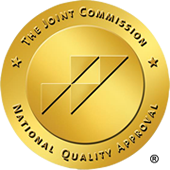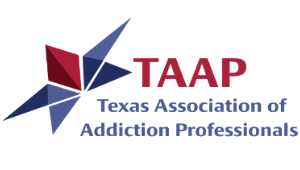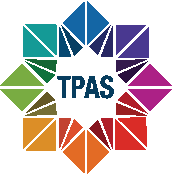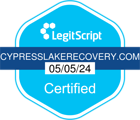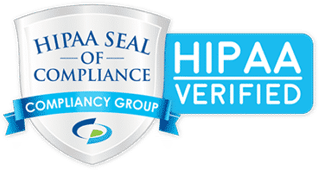Individual Therapy for Addiction Treatment in East Texas
Did you know that nearly 21 million Americans struggle with at least one addiction, yet only 10% receive treatment? Addiction doesn’t just impact the individual, but ripples through their families, workplaces, and communities.
At Cypress Lake Recovery in Woodville, Texas, we understand that finding the right path to recovery is deeply personal. That’s why we prioritize individualized care, offering detox, residential treatment, and dual diagnosis treatment to address not just addiction but its root causes. Individual therapy is a key part of the recovery process, providing a safe space to explore personal challenges, uncover underlying triggers, and build a foundation for lasting recovery.

The Role of Individual Therapy in Recovery
Individual therapy provides a safe and supportive environment for individuals to explore their thoughts and feelings related to addiction. It allows for personalized treatment plans that address the unique needs of each person. Therapy can help individuals develop coping strategies, improve self-awareness, and foster personal growth.
Through individual therapy, clients can work through underlying issues that may contribute to their addiction, such as trauma, anxiety disorders, or depression. This tailored approach can enhance the likelihood of long-term recovery and helps individuals build a healthier relationship with themselves and others. The therapeutic relationship itself can serve as a model for healthier interactions outside of therapy, helping clients to practice vulnerability and honesty in a safe space.
Contact Our Admissions Team Today

Benefits of Individual Therapy
Individual therapy plays a vital role in helping people reclaim their lives from addiction. It offers a personalized approach to healing, addressing the unique needs of every individual on their recovery path on a timeframe that makes sense for them.
Addiction is deeply personal, and no two experiences are exactly alike. Individual therapy allows treatment to be tailored specifically to your challenges and goals. Therapists work closely with you to design a plan that accommodates your history, personality, and recovery timeline. This customized approach can create much better outcomes by focusing on what truly matters to you.
Addiction often stems from deeper emotional pain, trauma, or mental health struggles. Through individual therapy, you have the opportunity to explore and identify these underlying issues. Many people benefit from discovering the root causes of their behavior, which allows for long-term healing rather than simply treating the symptoms. For people with a dual diagnosis, therapists integrate mental health treatment with addiction recovery, ensuring a comprehensive approach that takes everything about your life into account.
Recovery from addiction involves learning how to handle life’s challenges without turning to substances. Individual therapy introduces effective coping strategies that can empower you to handle stress, manage triggers, and maintain your mental health. These tools help the individual respond to difficulties in a healthy, constructive way, setting you up for sustained success.
Sometimes, the hardest part of recovery is opening up. Individual therapy provides a safe, judgment-free environment where you can freely discuss your experiences and feelings. This safe space fosters trust between you and your therapist, creating a strong foundation for deeper healing.
Recovery is not a straight line, and individual therapy can provide consistent guidance no matter where you are in your journey. Whether you’re working through detox, participating in residential treatment, or navigating life after rehab, individual therapy helps you stay on track. Your therapist can adapt the plan to account for your progress, offering new goals and insights as you grow stronger.
Types of Individual Therapy for Addiction
Cognitive Behavioral Therapy (CBT) is one of the most widely used therapeutic approaches for addiction treatment. It focuses on identifying and changing negative thought patterns and behaviors that contribute to substance use. CBT helps individuals develop healthier coping strategies and problem-solving skills.
Through CBT, clients learn to recognize triggers that lead to substance use and develop strategies to manage cravings. This therapy is often short-term and goal-oriented, making it a practical choice for many individuals seeking recovery. Additionally, CBT emphasizes the importance of self-monitoring and self-reflection, encouraging clients to keep journals or logs of their thoughts and behaviors. This practice not only fosters greater self-awareness but also empowers clients to take an active role in their recovery process.
Dialectical Behavior Therapy (DBT) is another commonly used therapy to treat addiction, particularly for individuals struggling with emotional regulation. DBT combines cognitive-behavioral techniques with mindfulness practices, helping clients develop skills to manage intense emotions and tolerate distress.
DBT can be particularly beneficial for those with co-occurring disorders, as it teaches individuals how to cope with stress and emotional pain without resorting to substance use. The skills learned in DBT can lead to more stable and fulfilling lives.
Eye Movement Desensitization and Reprocessing (EMDR) is a specialized therapy designed to help individuals process traumatic memories. This approach can be particularly useful for those whose addiction may be tied to past trauma.
During EMDR sessions, clients are guided through a series of eye movements while recalling distressing memories. This process can help desensitize individuals to traumatic experiences, reducing their emotional charge and allowing for healthier coping mechanisms. EMDR is often structured in phases, which include history-taking, preparation, assessment, desensitization, installation, body scan, closure, and reevaluation. This structured approach provides a clear roadmap for clients as well as helps to dampen the impact of the trauma, assisting in the healing process.
Testimonials
![]()
![]()
![]()
![]()
![]()
Regina
I am so happy that I chose Cypress to begin my recovery. I have suffered for years from depression, anxiety, panic disorder, and PTSD. The programs that are offered here at Cypress have been truly phenomenal in helping me recover. I also appreciated the professional staff that are here on duty 24/7, which helps create a safe environment. Cypress Lake Recovery uses effective “one on one” methods that meet each person’s individual needs because they evaluate and have a better understanding of your personal traumatic experiences. Thanks Sabino, I am truly grateful to you and the Cypress family.
![]()
![]()
![]()
![]()
![]()
J.A.
A beautiful facility! Staff sets the tone and kindness that residents easily follow. Thank you, Cypress Lake Recovery!
![]()
![]()
![]()
![]()
![]()
Pamela
The program at Cypress Lake Recovery works! I emerged from an accumulation of unrecognized emotions, issues of trust, and unresolved grief and loss. 35-days of effective integration of customized quality therapy reconnected my mind, body, spirit, and I am worth it! I had masked emotions and hurtful events for decades with alcohol. At Cypress Lake Recovery I safely focused deep within to unleash harmful secrets and self-degradation. Tools of recovery were practiced, not just presented. Integrative therapies were tailored to my circumstances, thus were effective. This residential program is like no other. For me, Cypress Lake Recovery delivered what was professed. I am forever grateful for this gift of healing.
![]()
![]()
![]()
![]()
![]()
Mike
Life changing experience. Wonderful staff. Wonderful program. Thanks for everything!
![]()
![]()
![]()
![]()
![]()
Darcy
It was great to begin my recovery in a group environment with so many knowledgeable nurses, therapists, BHT’s, and others around for support. The equine therapy, challenge course, family week, and daily therapies all work together seamlessly, allowing me to leave Sabino as a healthier and stronger person!
Understanding Dual Diagnosis Treatment for Addiction
The Interaction Between Mental Illness and Addiction
The Importance of Simultaneous Treatment
Building a Supportive Environment for Recovery
The Role of Family and Friends
Community Resources and Support Groups


Learn More About Our Individual Therapy for Addiction
Through personalized treatment plans and a non-judgmental approach, we are dedicated to guiding you towards a healthier lifestyle and rekindling connections with your loved ones. Contact us today to start your journey to recovery at the Lodge, where peace and serenity await you in East Texas.
Nationally Recognized & Accredited
